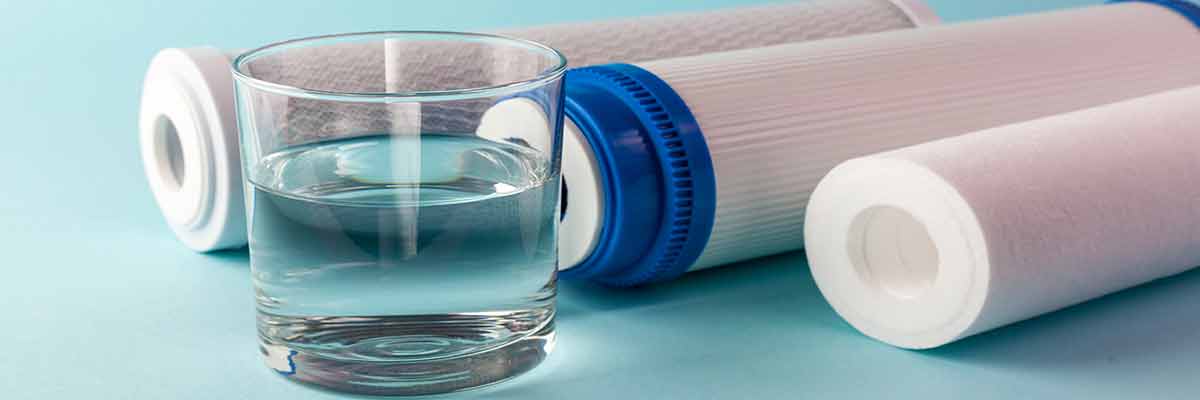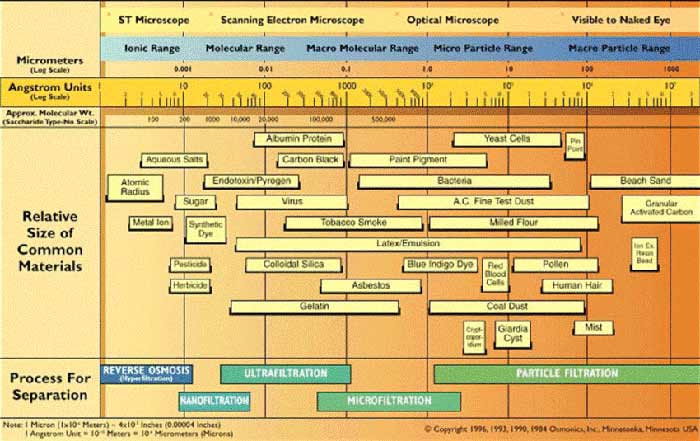
Welcome to the wonderful world of filtration
Articles | Filter | Membranes | Porous Fiber | Sintered Porous Plastic |
Mar. 18, 2020
Filtration impacts every aspect of our lives. People are most familiar with the air dust filters in the HVAC unit or the cartridge filters in the refrigerator for drinking water. However, most of us may not be aware that most manufactured goods we use and processed food we eat may require filtration or separation, directly or indirectly. Filtration processes can be physical, chemical, or biological operations that separate one or more matters from a mixture. This operation is usually carried out with the aid of filtration media – the filter, which helps to perform the function of having the concerned matters or particles captured or isolated. One way to have a better understanding of the World Of Filtration is to look at the chart of the Filtration Spectrum presented by Osmonics. On the large end of the spectrum, the Particle Filtration usually deals with matter or particles visible to the human naked eye, such as sands, grains, saw dusts or human hair. Smaller than that will be Microfiltration where the matters or particles can only be observed by using an optical microscope. These particles include milled flour, coal dust, blood cell and some bacteria. Further down the spectrum, we will need to use more specialized instrument such as a Scanning Electron Microscope (SEM) to observe the concerned matters or particles and utilize a more complicated Ultrafiltration process to separate them. Matters or particles in this spectrum include asbestos, smoked tobacco particles or some virus.

As you can see, the filtration media or the filter is the most critical component in a filtration process to separate the targeted matters or particles. There are many critical characteristics or requirements that a filter need to meet in order to perform the separation function effectively. Among them, the filtration efficiency, pressure drop, chemical and thermal compatibilities and the geometry are the most important.
To learn more about Filtration, register and watch our Webinar about filtration.
